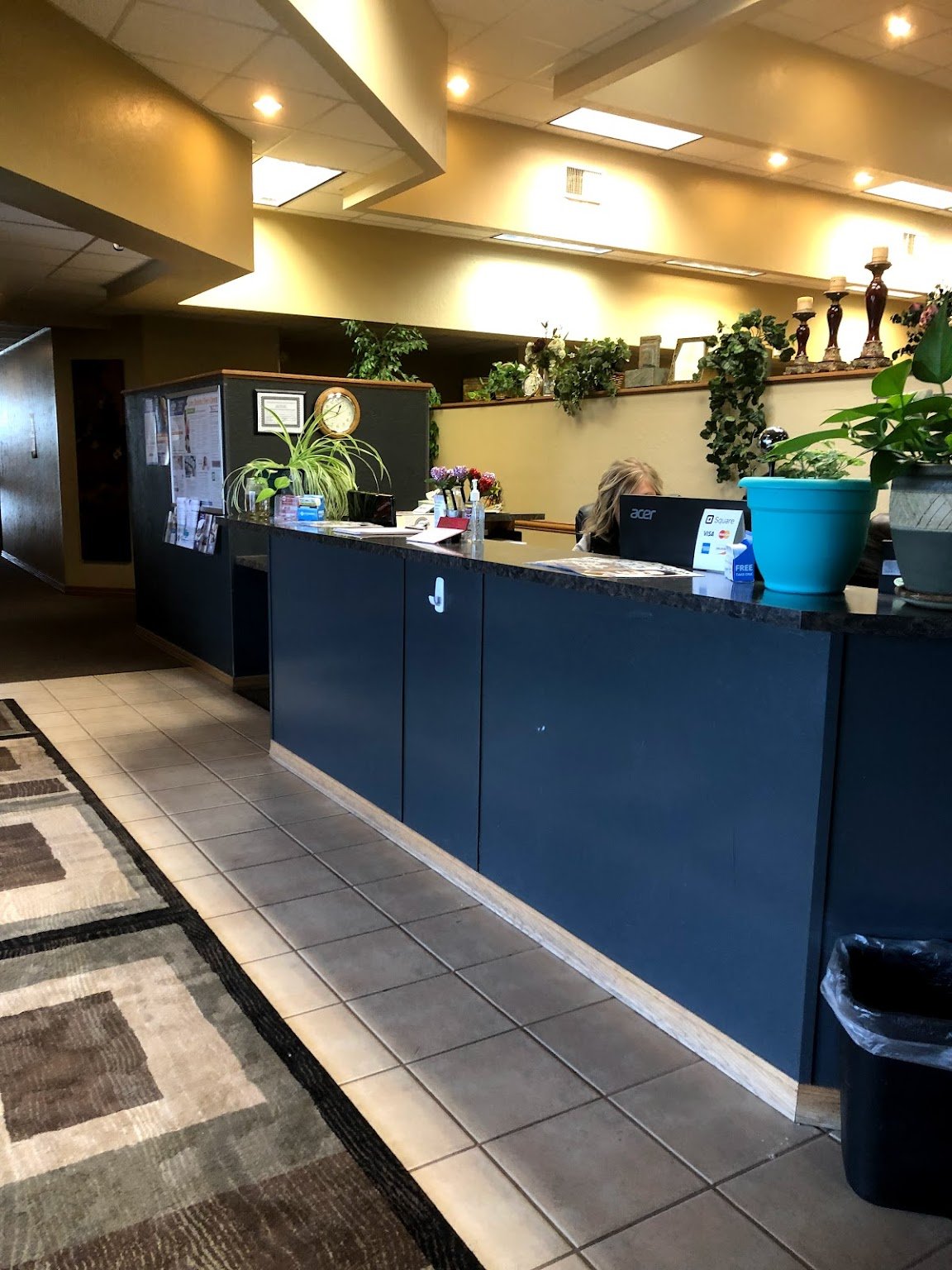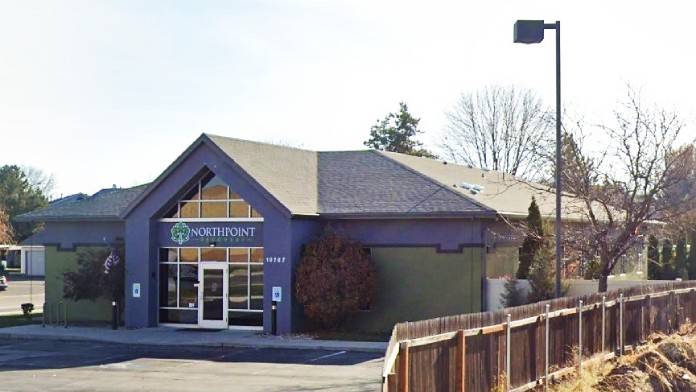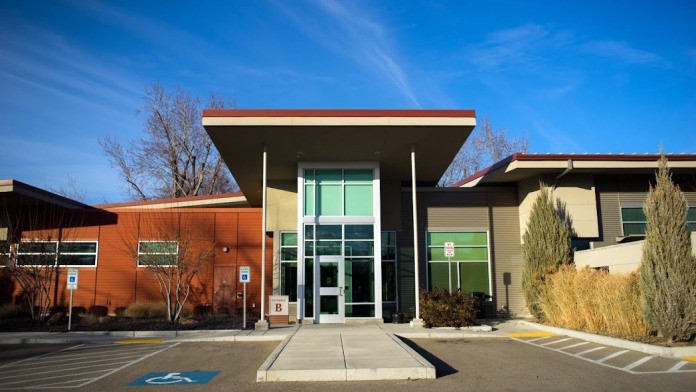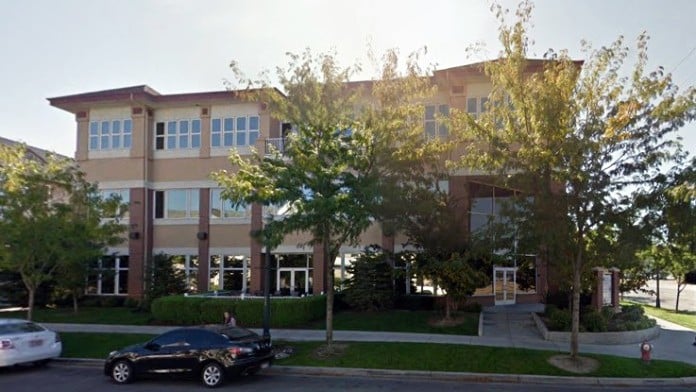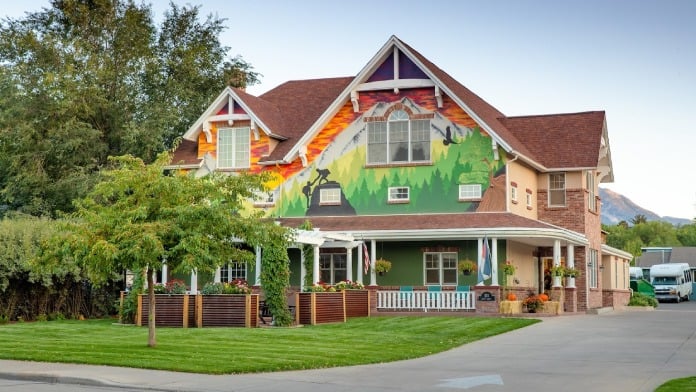About Walker Center – Residential Treatment in Gooding
Walker Center in Gooding, Idaho, is a residential treatment center that provides substance use disorder treatment services. They provide gender specific treatment, experiential therapy and ongoing support after completing the program.
A Structured Schedule For Healing
Your daily schedule will begin with mindfulness and exercise as a part of strengthening your mind body connection. The exercises you’ll do may include yoga and pilates. The rest of your day will consist of one on one sessions and daily group sessions.
The staff will create meals for you that fit within your dietary needs and provide you with proper nutrition to help heal your body. Family members can become a part of your recovery process when you’ve gotten half way through your treatment. The residential treatment program will last about eight weeks.
Experiential Therapy to Support Your Recovery
Every other week you’ll be able to participate in experiential activities. These activities will include a ropes course, team building exercises and therapeutic outings. The goal of this therapy is to help you process past trauma and learn how to cope without using substances.
Aftercare Services to Continue a Sober Lifestyle
When you’ve completed the residential treatment program, you’ll be able to apply to stay at the Walking Sober House or be guided towards other transitional housing options. The staff will be able to connect you to employers in town who are willing to support your recovery journey. You’ll also be connected to the outpatient office to continue therapy sessions.
Gooding, Idaho is not far from the Sawtooth National Forest. Outside of your treatment sessions, you can spend time doing activities such as going for a hike and enjoying the sight of the mountains.
Facility Overview
Latest Reviews
We're truly sorry to hear that your experience at The Walker Center didn’t meet your expectations. Your feedback is appreciated.
We strive to provide a safe, supportive, and respectful environment for everyone in our care. It is unfortunate your experience was not good for you and happy to hear you found another option. We apologize if any of our staff contributed to those feelings.
While we can’t speak to specific details publicly, if you’re open to it, we would appreciate the opportunity to talk further and better understand what happened. Please feel free to contact our leadership team directly. We wish you continued healing on your journey and hope you’ve found a space that feels safe and empowering for you.
Rehab Score
Gallery
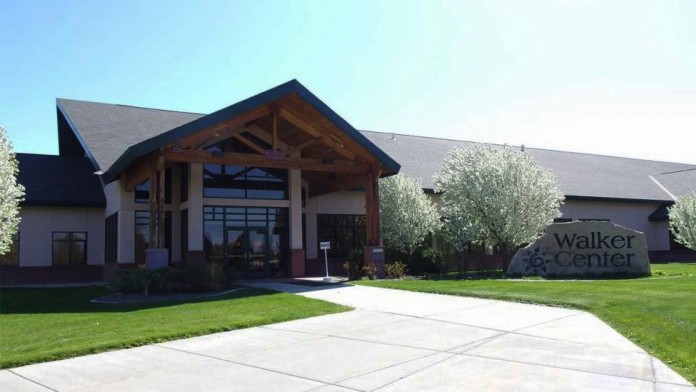
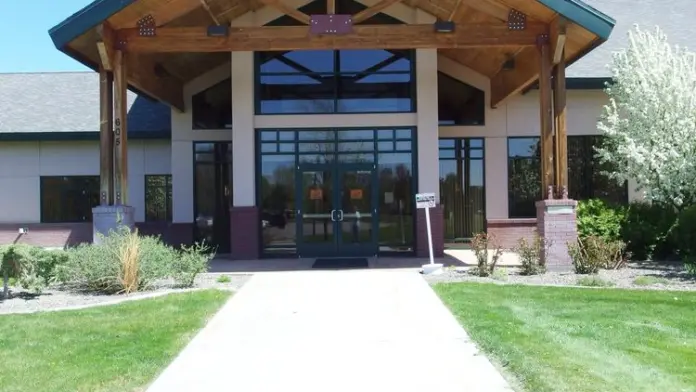
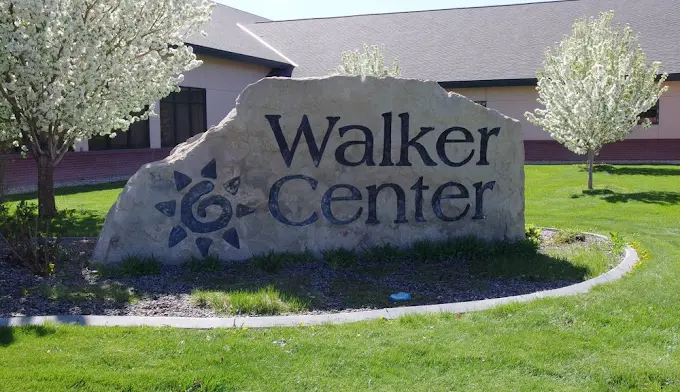
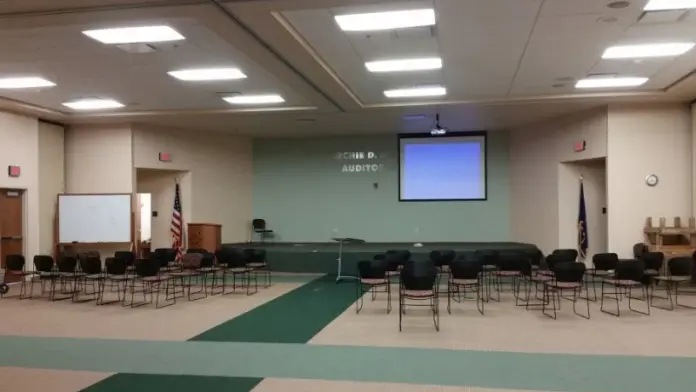
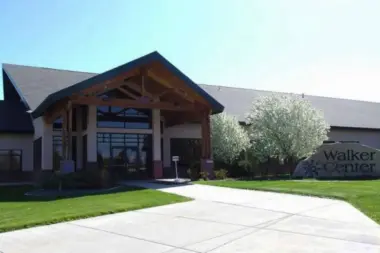
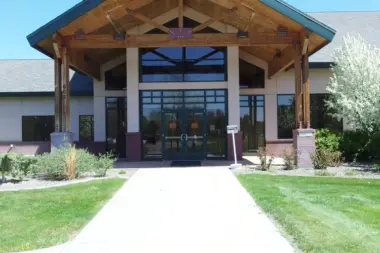
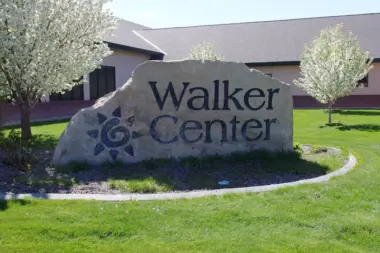
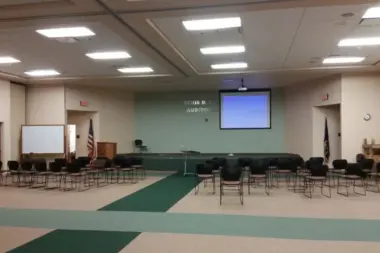
Accepted Insurance


Other Forms of Payment
Private insurance refers to any kind of healthcare coverage that isn't from the state or federal government. This includes individual and family plans offered by an employer or purchased from the Insurance Marketplace. Every plan will have different requirements and out of pocket costs so be sure to get the full details before you start treatment.
Self-pay involves paying for treatment out of your own pocket. You can use savings or credit, get a personal loan, or receive help from family and friends to fund your treatment. If you don't have insurance or your insurance plan doesn't cover a specific program, self-pay can help ensure you still get the care you need.
Financial aid can take many forms. Centers may have grants or scholarships available to clients who meet eligibility requirements. Programs that receive SAMHSA grants may have financial aid available for those who need treatment as well. Grants and scholarships can help you pai for treatment without having to repay.
Military members, veterans, and eligible dependents have access to specific insurance programs that help them get the care they need. TRICARE and VA insurance can help you access low cost or no cost addiction and mental health treatment. Programs that accept military insurance often have targeted treatment focused on the unique challenges military members, veterans, and their families face.
Medicaid is a state based program that helps lower-income individuals and families pay for healthcare. Medicaid covers addiction treatment so those enrolled can use their coverage to pay for rehab. When a program accepts Medicaid the client often pays very little or nothing out of their own pocket.
Addiction Treatments
Levels of Care
Outpatient rehab programs are generally less intensive than inpatient care and are designed principally for clients who are medically stable, who have completed detox and/or inpatient care, and who are not at an elevated risk of relapse. Evening, night, and weekend services are commonly available, and most outpatient rehabs offer a variety of treatment modalities to align with clients' unique needs. These typically include psychotherapy, recovery-focused life skills training, and/often, medication assisted treatment (MAT).
Clients requiring treatment in an inpatient rehab are often those who need stabilization support as they exit detox or contend with a life crisis. Residing at the treatment facility enables clients to focus exclusively on their recovery. They engage in extensive psychotherapy and recovery-focused life skills training to support their sustained sobriety and prepare them for outpatient and community-based care. Evidence-based holistic therapies, such as experiential therapy and meditation, are also commonly available.
Clients in an intensive outpatient program (IOP) are typically in early recovery or are at an elevated relapse risk. This includes those who are exiting detox or inpatient care, those in crisis, and those who have chosen IOP in lieu of hospitalization. Intensive outpatient treatment involves a minimum of nine and a maximum of 20 treatment hours weekly. Most rehabs offer a variety of services, including medication assisted treatment (MAT), addiction counseling, recovery-focused life skills training, and holistic therapies.
Many recovery centers base their treatment models on 12 step programming, which emphasizes spiritual development and peer coaching. 12 step recovery is designed to help participants address the root causes of their addiction, take accountability for their choices, and let go of that over which they are powerless. Though these programs prioritize spiritual growth, religious affiliation isn't required. Participants regularly attend anonymous, free, peer-directed meetings and are mentored by a peer sponsor.
A sober living home in Idaho is a residence where individuals in recovery stay until they feel ready to live on their own. These drug-free environments can help individuals transition from inpatient rehab to day-to-day life. Typically, residents stay for at least 90 days, but they can remain for as long as they continue to abide by halfway house rules. These include maintaining sobriety, contributing to household chores, paying rent, and abiding by a curfew.
The initial phase of addiction treatment typically involves 24-hour clinical care in Idaho. During this time, medical staff supervise the withdrawal process and treat any adverse symptoms or reactions that occur. These medical experts can prescribe and administer a number of medications proven to ensure the recovery process goes smoothly. For alcohol detox, benzodiazepines, valium, and Librium are often used to relieve symptoms of alcohol withdrawal. For cocaine detox, antidepressants such as desipramine or phentermine are used to treat cocaine withdrawal.
Medical detox is the process of removing addictive substances from your body in a medically supervised setting. With the aim of keeping you as safe and comfortable as possible, a team of licensed medical professionals monitors your vitals and may provide medications if needed to alleviate any withdrawal symptoms. Medically assisted detox is generally partially covered by most private insurance and insurance plans under the Affordable Care Act.
Treatments
Substance rehabs focus on helping individuals recover from substance abuse, including alcohol and drug addiction (both illegal and prescription drugs). They often include the opportunity to engage in both individual as well as group therapy.
Programs
Adult rehab programs include therapies tailored to each client's specific needs, goals, and recovery progress. They are tailored to the specific challenges adult clients may face, including family and work pressures and commitments. From inpatient and residential treatment to various levels of outpatient services, there are many options available. Some facilities also help adults work through co-occurring conditions, like anxiety, that can accompany addiction.
Young adulthood can be an exciting, yet difficult, time of transition. Individuals in their late teens to mid-20s face unique stressors related to school, jobs, families, and social circles, which can lead to a rise in substance use. Rehab centers with dedicated young adult programs will include activities and amenities that cater to this age group, with an emphasis on specialized counseling, peer socialization, and ongoing aftercare.
Recovery is most successful when clients feel accepted and validated by their peers and treatment providers. Facilities that offer LGBTQ-inclusive programming are committed to creating a safe space where everyone can grow and recover without fear of judgment or discrimination. They will have dedicated policies in place to create a safe and supportive environment that fosters free expression.
Serving in the military is both mentally and physically challenging, and can result in trauma that persists even after combat ends. Military programs are tailored to the specific and often complex needs of active duty personnel, veterans, and military families. Clients often access these programs through the U.S. Department of Veterans Affairs (VA).
Clinical Services
Research has shown that cognitive behavioral therapy (CBT) in Idaho is one of the most effective forms of therapy to treat substance use disorders and accompanying mental health disorders such as anxiety and depression. The focus of this method is to learn about and change patterns of thinking and behavior.
Dialectical behavior therapy involves individual and group sessions. During individual sessions, you will work on managing intense emotions. Group skills training sessions aim to enhance skills for daily living. They focus on mindfulness, distress tolerance, interpersonal effectiveness, and emotion regulation.
Group therapy is any therapeutic work that happens in a group (not one-on-one). There are a number of different group therapy modalities, including support groups, experiential therapy, psycho-education, and more. Group therapy involves treatment as well as processing interaction between group members.
In individual therapy, a patient meets one-on-one with a trained psychologist or counselor. Therapy is a pivotal part of effective substance abuse treatment, as it often covers root causes of addiction, including challenges faced by the patient in their social, family, and work/school life.
Unlike other more coercive methods, motivational interviewing does not impose change on the client. Instead, the therapist asks questions, listens, and reflects the client's thoughts back to them. This helps the person come to their own conclusions and supports making changes on their own terms based on those conclusions.
The goal of trauma therapy is to help you mentally, emotionally, and physically heal from the effects of witnessing or experiencing a traumatic event. Your therapist helps you process the experience and develop effective coping strategies. This improves your emotional well being and your ability to function in the community.
Couples therapy provides the opportunity to discuss challenges in the relationships and learn healthy ways to work through them. Therapy may address issues such as your roles, beliefs, finances, health, substance use, and children.
During family therapy in Idaho, members have a safe space to express their feelings about the impact addiction has had on the family unit. The process helps reduce the stigma associated with mental health and enhances each member's understanding of addiction. By promoting a unified approach, family therapy helps to support the recovery journey.
Part of recovery is replacing unhealthy habits with healthy life skills. These include psychological skills and social skills that allow you to thrive post treatment. While in rehab in Idaho, you'll work on developing these skills so you have the tools you need for a new life.
Recreational therapy is typically included in a holistic approach to drug and alcohol addiction treatment. It integrates activities like hiking, team sports, and art to improve physical fitness, provide an emotional outlet, and improve your social connections with others. These are skills you need to rebuild your life and maintain your sobriety.
Therapists who specialize in experiential therapy understand how emotional and physical responses work and can help you rewire your automatic responses. These neurobiological changes are facilitated through hands on interventions like art, music, or animal therapy.
Nicotine replacement therapy gives your body a small, controlled amount of nicotine to reduce withdrawal and cravings. Formats include patches, gum, and lozenges. These tools can double your chances of quitting long term.
Amenities
-
Yoga Studio
-
Residential Setting
Staff & Accreditations
Staff
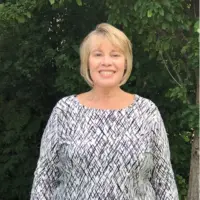
Debbie Thomas, LPC, ICADC, MAC
CEO

Reid W. Lofgran, DO
Medical Director

Chris Comstock, M.Ed.
COO
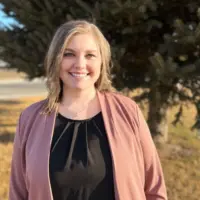
Sarah Walling-Gifford, LCSW
Director of Clinical Services & Performance
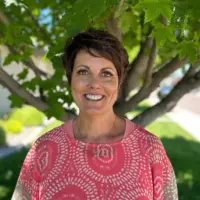
Christine Standlee
Director of Community Relations
Accreditations

The Commission on Accreditation of Rehabilitation Facilities (CARF) is a non-profit organization that specifically accredits rehab organizations. Founded in 1966, CARF's, mission is to help service providers like rehab facilities maintain high standards of care.
CARF Accreditation: Yes

LegitScript has reviewed Walker Center – Residential Treatment in Gooding as part of their certification program, and has determined that it meets the LegitScript standards for legality, safety and transparency.
LegitScript verified in
Contact Information
605 11th Ave. East
Gooding, ID 83330

